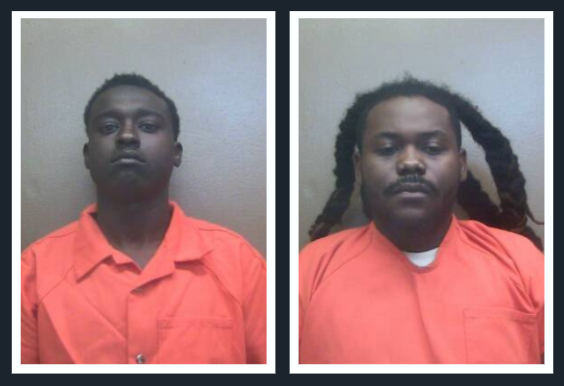
“Wait, Do we still celebrate Columbus Day?” The question was littered across social media and asked by coworkers around the country this year. The answer, in short: Sure!
In many areas, the holiday has changed to “Indigenous Peoples Day.” According to a recent article in the New York Times, “More than 130 cities have adopted the holiday, choosing to heed calls from Indigenous groups and other activists not to celebrate Christopher Columbus, the Italian navigator after whom the holiday is named. They say he brought genocide and colonization to communities that had been in the Americas for thousands of years. Many around the country, however, still celebrate Columbus Day or Italian Heritage Day as a point of pride.”
Columbus Day originates from what National Geographic describes as “a late 19th century movement to honor Italian American heritage at a time when Italian immigrants faced widespread persecution.” Since Columbus was Italian, he seemed an excellent example of what Italian Americans were hoping to promote about their culture: an adventurous, heroic, and inventive voyager.
Celebrated around (and later on) the second Monday of October each year since at least 1792, the 500th anniversary in 1992 offered Americans a chance to reflect on the meaning of the holiday. Many objected to Columbus Day, as celebrating European conquests could be seen as condoning the genocide of Native Americans. Alternative celebrations, such as Indigenous Peoples Day, were suggested.
Through the lens of the American story, however, perhaps these two holidays are not actually at conflict with one another. It is interesting to note that both celebrations reflect, in part, our attempts to commemorate groups of people who have been mistreated. Perhaps finding common ground in the meaning behind these still-observed holidays can help us make sense of it all.
Columbus:
Most of us have studied Christopher Columbus since early childhood. Many of us have lived in cities named for him, been on streets with his statue, and we rarely forget what he did in “fourteen hundred and ninety-two.”
In our later years, we learned of how many European conquests led to the destruction of entire civilizations living on this continent. Our later history classes revealed that Columbus didn’t necessarily “discover America”, and that, like with all history, there is probably more to the story. His mark on history is impossible to negate, however. For brevity’s sake:
The explorer Christopher Columbus made four trips across the Atlantic Ocean from Spain: in 1492, 1493, 1498 and 1502. He was determined to find a direct water route west from Europe to Asia, but he never did. Instead, he stumbled upon the Americas. Though he did not really “discover” the so-called New World—millions of people already lived there—his journeys marked the beginning of centuries of exploration and colonization of North and South America. (History.com)
This 4-minute video made by Brainpop Junior (shared to YouTube) offers a good look at the contributions of Christopher Columbus for young people (or older folks who like things simplified!)
Columbus Day:
Interestingly, the creation of this day as a Federal holiday has a background in oppression and opposition, and the celebration of an often “maligned” culture. According to an article in National Geographic:
Before the late 19th century, the celebrations were mainly limited to Catholic and Italian American enclaves on the East Coast, where many embraced Columbus as an intrepid explorer who embodied progress and bravery… Celebrations of Columbus gained momentum as Italian immigration grew from a trickle to a flood. Beginning in the 1880s, Italian immigrants began pouring into the U.S. in search of opportunity and a better life. But the new arrivals were not welcomed by all. Maligned as sinister and criminal, Italian immigrants were the focus of increasing bigotry.
In 1890 anti-Italian sentiment boiled over in New Orleans after police chief David Hennessy, reputed for his arrests of Italian Americans, was murdered. In the aftermath, more than a hundred Sicilian Americans were arrested. When nine were tried and acquitted in March 1891, a furious mob rioted and broke into the city prison, where they beat, shot, and hanged at least 11 Italian American prisoners. None of the rioters who lynched the Italian Americans were prosecuted. It remains one of the largest mass lynchings in the nation’s history.
The brutal killings created tit-for-tat tensions between the U.S. and Italy, which called for reparations for the murders. At first, the U.S. refused, prompting Italy to recall its ambassador and cut off diplomatic relations. The U.S. reciprocated.
But eventually, in an attempt to appease Italy and acknowledge the contributions of Italian Americans on the 400th anniversary of Columbus’ arrival, President Benjamin Harrison in 1892 proclaimed a nationwide celebration of “Discovery Day,” recognizing Columbus as “the pioneer of progress and enlightenment.” Eventually, the nations mended their relationship and the U.S. paid $25,000 in reparations.
In the decades after the mass lynching, Italian American advocates pushed for a nationwide holiday, and states slowly began to adopt it. In 1934, President Franklin D. Roosevelt designated it a national holiday, and in 1971 Congress changed the date from October 12 to the second Monday of October. The holiday, writes historian Bénédicte Deschamps, “allowed Italian-Americans to celebrate at the same time their Italian identity, their Italian-American group specificity, and their allegiance to America.”

Indigenous People’s Day
The observation of Indigenous Peoples Day, which has been celebrated around the country on this day since at least 1992, was made official in 2021. It was proclaimed as a day to honor “our diverse history and the Indigenous peoples who contribute to shaping this Nation.” The US government also issued a Columbus Day proclamation acknowledging the contributions of Italian Americans as well as “the painful history of wrongs and atrocities” that resulted from European exploration.




















